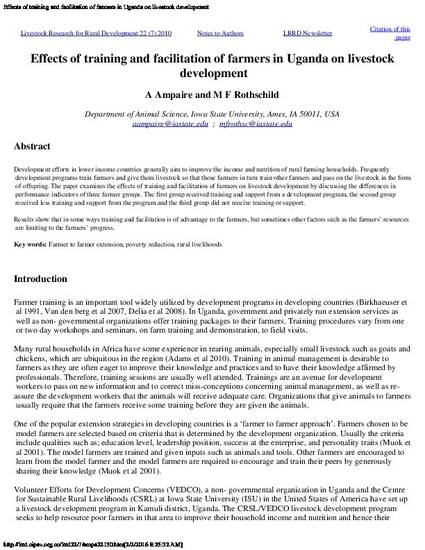
Development efforts in lower income countries generally aim to improve the income and nutrition of rural farming households. Frequently development programs train farmers and give them livestock so that those farmers in turn train other farmers and pass on the livestock in the form of offspring. The paper examines the effects of training and facilitation of farmers on livestock development by discussing the differences in performance indicators of three farmer groups. The first group received training and support from a development program, the second group received less training and support from the program and the third group did not receive training or support.
Results show that in some ways training and facilitation is of advantage to the farmers, but sometimes other factors such as the farmers’ resources are limiting to the farmers’ progress.
Available at: http://works.bepress.com/max-rothschild/43/

This is an article from Livestock Research for Rural Development 22 (2010): 1. Posted with permission.